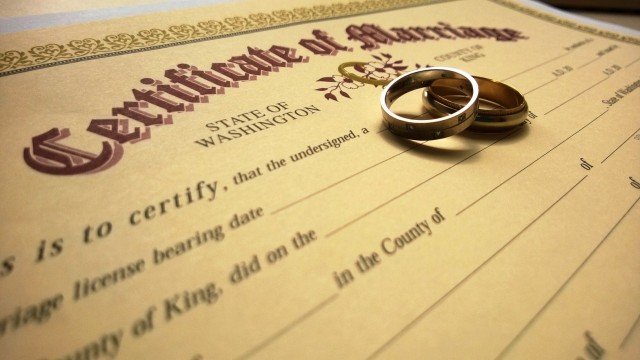Court Marriages are solemnized under the Special Marriage Act, 1954. They are allowed under the Indian Law between any Indian Male and Female irrespective of their caste, creed, religion, status etc. Marriages in court are a civil contract and thus do not require any religious ceremony. Under the purview of the Special Marriage Act, 1954, a court marriage between an Indian Male and a Foreign National Female is also recognized. The advent of the system of court marriage has to some extent done away with the rituals and traditions that are underwent in an Indian Wedding. The parties can directly approach the marriage registration for performance and thereafter registration of their marriage followed by grant of marriage certificate.
There are some prerequisites that are required for a Court Marriage to be conducted and which if not followed might render it void or voidable. They are:
- There should not be any subsisting valid marriage of the bride or the groom with any other party.
- The bridegroom should be of minimum 21 years of age and the bride should be minimum 18 years to be eligible for a court marriage.
- The Parties should not be of unsound mind of such a nature that they are not able to give valid consent for the marriage or suffering of a mental disorder of such a kind or unfit to such an extent for marriage or for procreation of children, and also must not suffer from recurring attacks.
- Neither the bride nor the bridegroom should fall in the arena of prohibited relationship.
The following documents are required for the registration of Court Marriage:
- Application form in the prescribed format with the prescribed fee
- Passport Size Photographs of Marrying Persons
- Residential Proof of the people getting married.
- Date of Birth Proof of the Bridegroom and the Bride.
- Three Witnesses with Residential Proof and Pan Card are required.
- Death certificate or divorce decrees whichever is applicable, in a situation where either of the parties was married before.
The following procedure is required to be followed in a court marriage:
- The parties need to file a Notice of Intended Marriage in the specified form to the Marriage Registrar of the district in which at least one of the parties to the marriage has resided for a period of not less than 30 days immediately preceding the date on which such notice is given. The marriage registrar that the parties approach should be in the area of residence of at least one of the parties.
- The notice is then published/put-up by the Registrar of Marriage inviting objections, if any. The notice will consist details of the man and woman that is inclusive of their name, date of birth etc.
- After the expiration of 30 days from the date on which notice of intended marriage has been published, the marriage may be solemnized unless any person has objected it. If any person during the specified time makes an objection to the intended marriage, he or she can approach the registrar and register a complaint corroborated with appropriate evidence. Various objections can be raised like the parties are below legal age, bigamy will be resulted if the marriage is solemnized etc. These objections then will be verified and investigated by the registrar to make a justiciable decision.
- If the objections raised are found faulty, the marriage may be solemnized at the specified Marriage Office on any day within the next three months. A date of marriage preferable to the parties will be required to be pre informed at the office and should be registered. In case, three months have lapsed from the notification made by the parties, the entire process will start from scratch.
- Both parties along with three witnesses are required to be present on the date of registration/Solemnization. They are then made to read the vows and provide with their signatures in the register. This concludes their valid marriage.
- As a part of a small ceremony and in compliance of the wish of the bride and the groom, they can also exchange rings and make each other wear garlands at the time of registration.
- The parties can collect the marriage certificate within a week after the marriage is registered.
Author: This blog is written by Ms. Surbhi Jaju, a passionate blogger & intern at Aapka Consultant.
OUR SERVICES
Company Registration I Trademark I Copyright I Patent I GST I MSME
ISO Certification I Website/App Policy I Legal Documentation
Annual Compliance I Connect Consultant
Visit: Aapka Consultant to get Online Services of CA CS & Lawyers.












